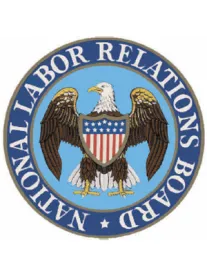Last week, the United States Court of Appeals for the Ninth Circuit overturned a decision by the NLRB dismissing a complaint against two joint employers alleging unlawful termination in retaliation for picketing activity. The Court, reversing the Board, found that the employees’ picket was not unlawful secondary activity and therefore did not lose the protection of the Act. Service Employees International Union Local 87 v. NLRB, Case No. 19-70334 (Apr. 28, 2021).
Background
The case involved a ULP charge filed by the union on behalf of terminated employees against their primary employers, a building services company and a janitorial services subcontractor. A property management company hired the building services company to provide janitorial services to one of the buildings it managed. The building services company subcontracted the work to the janitorial services subcontractor who directly employed the employees to perform the janitorial work.
In response to issues concerning wages and other working conditions, the employees, with the assistance of the union, organized two pickets in front of the building for which the employees provided janitorial services. At the conclusion of the pickets, several employees were fired by the janitorial services subcontractor, and the building services company terminated its contract with the property management company and, consequently, with the subcontractor. The union filed a ULP charge against the primary employers, alleging unlawful termination in retaliation for protected activity under the Act. However, the NLRB credited the employers’ affirmative defense and found that the employees lost the protection of the Act by engaging in secondary activity in violation of Section 8(b)(4)(ii)(B) of the Act. The Board held that the employees’ picketing constituted secondary activity intended to pressure a neutral party, the property management company, to “cease doing business” with the primary employers.
Analysis
Under the Act, conduct that coerces, threatens, or restrains a neutral employer with the objective of pressuring the neutral employer to “cease doing business” with the primary employer, or the employer with whom employees have a labor dispute, constitutes unlawful, secondary activity. Conduct is found to have this requisite secondary objective when it seeks to force the neutral employer to terminate its business relationship with the primary employer or to pressure the primary employer into changing its labor policies. The Board found that the General Counsel and the union failed to establish that the picketing clearly disclosed that the dispute was with the primary employers, the building services company and the subcontractor, creating a rebuttable presumption that the picketing was unlawful secondary activity. The Board further held that the picketing had an impermissible secondary objective.
On appeal, the Court concluded that the Board’s finding of unlawful picketing activity was not supported by sufficient evidence but rather was based on the “thinnest of reeds”. Contrary to the Board, the Court found that the picketing employees clearly indicated that their dispute was with their primary employer, stating that the single sentence in a leaflet isolated by the Board in its analysis did not obfuscate the plain language of the picketers’ signs and materials that called on the building services company by name.
The Court also disagreed with the Board’s finding that there was independent evidence that the employees’ picketing had a secondary purpose, namely to pressure the property management company to “cease doing business with” the primary employer. The Court held that the Board placed too much weight on statements made by employees to the property manager during the picketing, noting that none of the picketing employees’ signs or leaflets mentioned the property management company and there was no evidence in the record showing that the employees requested the property management company to intervene or threatened action against the neutral employer. As such, the Court held that the Board erred in concluding that the employees’ picketing violated Section 8(b)(4)(ii)(B) of the Act.
Takeaway
The Court’s holding suggests that the evidentiary standard for finding an impermissible secondary objective is fairly significant. While the Board’s interpretation of the Act, including the meaning of unlawful secondary activity under Section 8(b)(4)(ii)(B), is owed deference from reviewing courts, the Ninth Circuit’s decision in this case indicates that federal courts can and do intervene where the Board’s decision, in the court’s opinion, is not supported by sufficient evidence. Depending on whether other circuit court of appeals follow the Ninth Circuit’s precedent, this decision may increase the evidentiary burden that entities must carry to show that otherwise concerted activity is secondary in nature, thus losing its protection under the Act.





 />i
/>i

